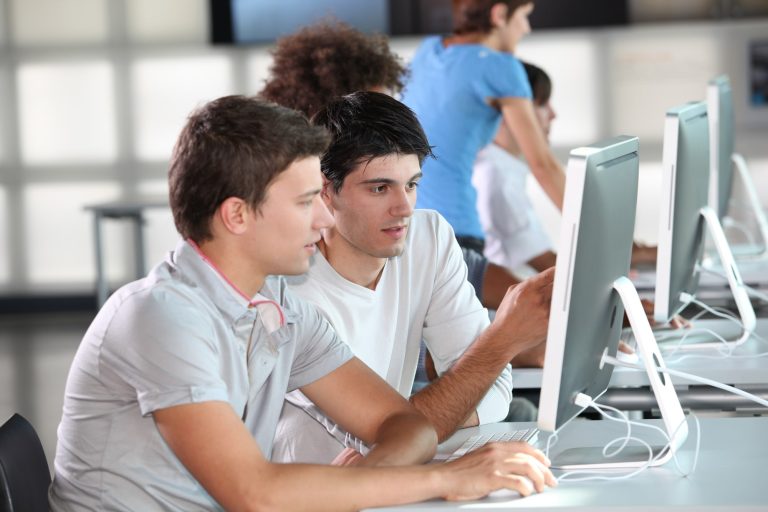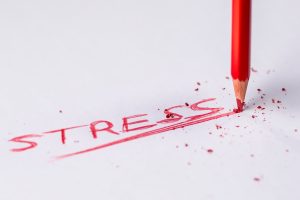The History of Mathematics
Mathematics has been around since the very beginning of human civilization, being used by our ancestors to measure, calculate, and understand the world around them. At first, maths was used as a tool for practical tasks such as tracking the course of the sun and stars and measuring the land. Ancient Babylonians were the first to use algebraic equations, while the Egyptian and Greeks were the pioneers of geometry.
As time went on, mathematics evolved with the help of countless inventors, engineers, and thinkers. In the 17th century, calculus began to take shape and became the foundation for modern physics. By the 19th century, mathematics had become an integral part of everyday life, from engineering projects to currency conversion. Today, mathematics is essential for computers, research, and progress in all areas of science.
Mathematics is applicable to nearly every aspect of life – it helps us understand the universe, build machines and tools that make life easier, and predict future outcomes. It is so important that it has become a language of sorts, offering us a unique way of understanding the world and making sense of things that would otherwise remain unknown. We use maths to measure, calculate, and explore the unknown, to better comprehend our place in the universe.
Arguments and Observations about Mathematics
The field of mathematics is one that has been studied for centuries and is heavily intertwined with many aspects of life. When it comes to researching and reflecting on mathematics in the context of TOK essays, there are many different arguments and observations that can be made. It’s important to keep an open mind when considering mathematics from these different perspectives as different people may have different views.
One way of looking at mathematics is as a tool. In this case, mathematics can be used to help make decisions and create solutions to problems. Many of the advances made in science and engineering wouldn’t be possible without its use. It can also be seen as a way of organizing chaos and making sense of the world.
Others view mathematics as more than a tool– as an art form, or even a language. Mathematicians often talk of beauty they find in equations and results, while computer scientists use mathematical concepts to write algorithms and create programs. By solving problems and exploring new ideas, humans can better understand the world around them and make more informed decisions.
Finally, mathematics can be seen as having a moral dimension. For example, if a person knows the likelihood of an event occurring, they may be more likely to act on that information than if they had no knowledge of the situation. Each person must decide what their ethical code is when it comes to using and interpreting mathematical data.
By considering mathematics from different angles and highlighting how it can be useful in many different contexts and situations, discussions about mathematics can become more interesting and informative. From basic arithmetic to complex formulas, mathematics can be used in many different ways.
Areas of Knowledge
If you’re writing a TOK essay, then it’s important to understand how mathematics fits into the four Areas of Knowledge. These areas are: Sense Perception, Language, Reasoning, and Emotion.
Let’s start by looking at Sense Perception. As we know, mathematics is all about numerical relationships, understanding how numbers interact and how they can be used to solve problems. In this way, math is based on our senses, as it requires us to observe and measure the things around us. This means that mathematics falls under the Area of Knowledge of Sense Perception because it uses our senses to find patterns, draw connections, and make predictions.
The second Area of Knowledge is Language. Mathematics relies on language to communicate its ideas and results. Without language, mathematics would have no meaning or significance. This means that mathematics connects to the Area of Knowledge of Language as it utilizes symbols and words to discuss and explain mathematical concepts.
Next, let’s look at Reasoning. Mathematics is about using logic and thought processes to come to conclusions and prove assumptions. This means that mathematics falls under the Area of Knowledge of Reasoning due to the fact that it requires a person to be able to reason and think critically in order to arrive at a solution.
Finally, there is the Area of Knowledge of Emotion. Mathematics can often evoke emotions, both positive and negative. It can bring feelings of awe, excitement, and even fear. This means that mathematics can be related to the Area of Knowledge of Emotion since it has the power to influence the way we think and feel.
In conclusion, mathematics has undeniable relevance to all of the four Areas of Knowledge. By understanding and exploring the links between mathematics and each area, a writer can gain a greater appreciation for the subject and potentially uncover new ideas when writing a TOK essay.
Find out how TOK interdisciplinary role can transform traditional learning by linking concepts from diverse fields.
Mathematics and the Nature of Knowledge
Mathematics plays a key role in helping us to define and categorize our world around us. It allows us to understand fundamental truths that would be impossible to comprehend without it. The use of mathematics provides a basis for understanding the same truths consistently and accurately, which is important to ensure that our knowledge claims are reliable.
The power of mathematics lies in its ability to be used as a universal language. It can be used to explain the physical and abstract realms in the same way. This makes it easier to utilize in different contexts, providing a consistent approach to problem-solving no matter what the problem is.
As well as providing a means of understanding, mathematics also helps us to measure, quantify and analyse the world around us. For instance, physicists use math to understand the motions of planets or the behavior of particles, which gives us an insight into the physical world. Economists also rely on mathematics to analyze and forecast economic trends.
Moreover, mathematics also has applications in the social sciences. It can be used to measure social indicators such as poverty levels or crime rates, allowing us to make informed decisions about these areas. We can also draw upon mathematical models to assess risk in situations and make decisions accordingly.
Ultimately, mathematics is at the core of all areas of knowledge, providing us with the tools we need to understand, measure and analyse our world. It is also a powerful tool when it comes to writing a TOK essay, as mathematical proofs and arguments are often used to support claims made in regards to knowledge.
Mathematical Proofs
The concept of mathematical proofs is an important one when it comes to discussing mathematics as part of a TOK essay. A proof is essentially a way of verifying that a certain statement is true, based on various sets of evidence or assumptions. It is used in mathematics to ensure that any conclusions are backed up by facts and logical deductions.
Proofs play an important role in the field of knowledge and can be used to support conclusions or fill in gaps in existing knowledge. Mathematical proofs are used to validate theories and hypotheses, as well as provide insight into the structure and order of the natural world around us.
Mathematical proofs can take on many different forms—some more complex than others. Generally speaking, a proof involves showing that a given statement is true based on previously accepted facts and that the result will always be the same regardless of how it is approached. Common techniques used in proofs include deduction, comparison, and proof by contradiction.
Proofs are an essential tool for gaining a better understanding of mathematics and its application in the world around us. They allow us to make sure that our knowledge claims are properly supported and that we can gain a greater understanding of the nature of truth and certainty. By utilizing proof techniques, we can further develop our understanding of mathematics and use it to create new knowledge.
Ethical Considerations
Mathematics is an area of knowledge that can have strong ethical implications. When writing a TOK essay, it is important to consider these implications and think about the moral dimensions of mathematics.
Mathematics can be used to support certain arguments or provide evidence for certain conclusions. It is important to remember, however, that mathematics is not always definitive. In some cases, there may be multiple interpretations depending on ones perspective and values.
For example, theories in economics or social sciences may be based on or backed up by mathematical models. The values and assumptions underlying these models may differ, leading to different interpretations of the evidence.
At the same time, mathematics can be used to support ideas and arguments that are unethical. Therefore, it is important to consider who the argument is benefiting, who it is having a negative impact on, and what moral judgments should be applied when forming an opinion.
When writing a TOK essay, ethical considerations should be taken into account. For example, ask yourself questions like “Could this mathematical method be used to support a moral claim?”, or “Are there any ethical implications of this mathematical proof?”
By taking ethical considerations into account when writing a TOK essay, you will be able to create a more thorough and considered argument, which will demonstrate your understanding of the subject.
Conclusion
Mathematics is a unique way of exploring the world around us, and plays an important role in developing our understanding of the nature of knowledge. Through this guide, we have explored how mathematics helps us define and categorize the world around us by providing a basis for understanding the nature of truth and certainty. We have also discussed the four areas of knowledge and examined some arguments or observations that could be made in regards to mathematics as a field of knowledge.
When it comes to writing an essay on these topics, ethical implications should be taken into consideration, along with mathematical proofs that can be used to support any knowledge claims. All of these elements should be thoughtfully considered in order to complete an effective TOK essay that addresses the relevance and importance of mathematics in the greater context of knowledge.








